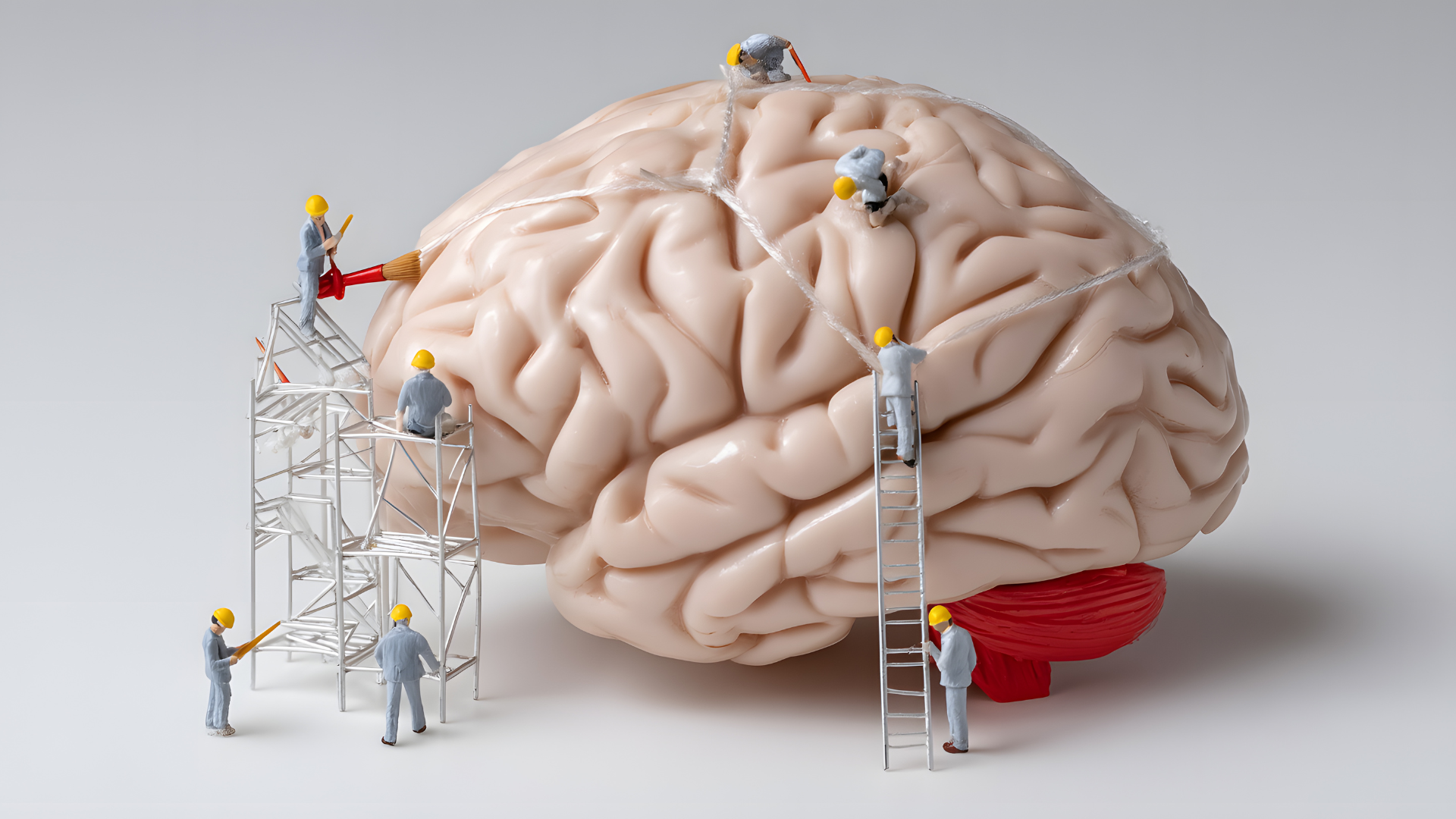(And What to Do Instead)
You’ve tried them all: keto, Slimming World, Weight Watchers, Cambridge Diet—you name it. You cut carbs, track points, avoid sugar, and hope the pounds will magically disappear.
But months later, the weight creeps back. Maybe even a little extra. Along with it: the cravings, the exhaustion, and that heavy sense of guilt — all familiar symptoms of burnout and overload I explore in The Modern Motherload: Why We’re All So Damn Tired. Another diet, another cycle.
And now, there’s a new wave of pressure — weight loss injections. Friends, family, and even colleagues rave about their “results,” and it’s tempting to believe they’ve cracked the code. But here’s the truth: diets and quick-fix weight loss trends fail because they ignore the bigger picture of health, mindset, and sustainability.
1. The Yo-Yo Trap
Lose weight. Gain it back. Repeat. That’s the reality for most diets.
When you restrict too much, your body responds as if it’s under threat. Hunger hormones (like ghrelin) rise, metabolism slows, and your brain becomes hyper-focused on food. Eventually, willpower runs out — not because you’ve failed, but because your body is designed to survive restriction.
This “yo-yo” effect leaves you mentally exhausted, physically drained, and often heavier than when you started (Mann et al., 2007).
2. Sugar Crashes and Carb Cravings
Carbs and sugars aren’t your enemies — they’re your body’s preferred source of fuel. When you understand how balanced meals affect your mood and focus, food becomes fuel again — not fear. I talk more about this in The Calm-from-Within Diet: How Food Shapes Your Mood.
Diets that villainise carbs often lead to low blood sugar, mood swings, and intense cravings. You might find yourself raiding the cupboards after days of “being good,” which isn’t weakness — it’s your body begging for balance.
Stabilising blood sugar through balanced meals (protein, fats, and complex carbs) reduces cravings and supports calmer moods (Benton & Donohoe, 1999).
3. Energy Dips and Mood Swings
Restrictive diets can wreak havoc on your hormones, blood sugar, and nervous system — all of which affect your energy and mood.
Skipping meals or cutting food groups often leads to irritability, anxiety, and that “hangry” feeling that makes daily life harder. Long-term restriction has also been linked to low serotonin levels and poorer mental wellbeing (Jacka et al., 2010).
Real energy comes from nourishment, not punishment.
4. Sleep Sabotage
Hunger pangs, caffeine overuse, and blood sugar fluctuations can all disrupt your sleep. When sleep suffers, cravings increase, metabolism slows, and your ability to make healthy choices plummets.
Studies show that even partial sleep deprivation increases hunger hormones and reduces leptin — the hormone that signals fullness (Spiegel et al., 2004). Dieting can literally keep you awake at night — both mentally and hormonally.
5. Hidden Health Risks
Rapid weight loss and extreme restriction can stress your body, increasing inflammation and disrupting your hormones. Over time, this stress can raise your risk of conditions like heart disease, insulin resistance, and fatty liver (Dhurandhar et al., 2015).
Ironically, the diet that promises better health can actually undermine it.
6. Social Pressure and Quick-Fix Fads
From weight loss injections to “detox teas” and 30-day challenges, the wellness world is full of promises. But most of these focus on appearance over wellbeing — and ignore long-term consequences.
Weight loss injections (such as GLP-1 agonists) may be helpful for some under medical supervision, but they’re not a magic cure. Without lifestyle change, most people regain the weight once treatment stops (Rubino et al., 2021).
Feeling pressured to conform to quick fixes can also harm your relationship with food — increasing guilt and shame rather than promoting health.
7. Mental Burnout
Dieting isn’t just physically exhausting—it’s mentally exhausting too. If you’ve reached that point of mental fatigue, 5 Real-Life Ways to Start Healing Burnout shares small, manageable habits that restore calm and energy.
Obsessing over calories, points, or “good” vs “bad” foods fuels anxiety and erodes self-trust. This mental load can become overwhelming, especially for busy women juggling work, family, and responsibilities. Emotional fatigue often leads to giving up — not because you lack discipline, but because you’re human.
Healing your relationship with food requires compassion, not control.
8. The Real Solution: Consistency Over Restriction
Long-term wellbeing comes from consistency, balance, and trust — not deprivation. These small changes don’t just improve your mood — they also protect your long-term health. Read more about this in Preventing Burnout Before It Becomes a Health Crisis.
Instead of chasing the next quick fix, focus on habits that make you feel energised and calm.
Eat balanced meals that keep your blood sugar steady
Move your body in ways that feel joyful, not punishing
Prioritise sleep and stress management as much as food choices
Reduce sugar gently and sustainably — not through guilt
These small, consistent steps create lasting results — for your energy, hormones, and mood — without leaving you deprived or burnt out.
The Bottom Line:
Diets and trendy weight loss solutions don’t work because they’re not designed to. They trigger cravings, disrupt sleep, drain energy, and create mental burnout.
True wellness isn’t about restriction, injections, or chasing numbers on a scale — it’s about nourishing your body, calming your nervous system, and building habits that fit your real life.
Stop chasing the scale or the latest fad. Start building a life that fuels your health, happiness, and energy every single day. If you’d like personalised support, discover what a trauma-informed health coach actually does, or take the Burnout Quiz to see where your wellbeing might need the most care.
About the Author
Mariko Broome is a trauma-informed transformational health coach and women’s wellbeing advocate.
Through her workshops, writing, and coaching, she helps women heal burnout, realign with their purpose, and create sustainable calm — one real step at a time.
References
Benton, D. and Donohoe, R. (1999) ‘The effects of nutrients on mood’, Public Health Nutrition, 2(3A), pp. 403–409.
Dhurandhar, E.J., Schoeller, D., Brown, A.W., Heymsfield, S.B., Thomas, D.M., Sørensen, T.I.A., Speakman, J.R., Jeansonne, M. and Allison, D.B. (2015) ‘Energy balance measurement: When something is not better than nothing’, International Journal of Obesity, 39(7), pp. 1109–1113.
Jacka, F.N., Pasco, J.A., Mykletun, A., Williams, L.J., Hodge, A.M., O’Reilly, S.L., Nicholson, G.C., Kotowicz, M.A. and Berk, M. (2010) ‘Association of Western and traditional diets with depression and anxiety in women’, American Journal of Psychiatry, 167(3), pp. 305–311.
Mann, T., Tomiyama, A.J., Westling, E., Lew, A.M., Samuels, B. and Chatman, J. (2007) ‘Medicare’s search for effective obesity treatments: Diets are not the answer’, American Psychologist, 62(3), pp. 220–233.
Rubino, D., Cohen, R.V., Mingrone, G., Le Roux, C.W., Mechanick, J.I., Aronne, L.J. and Batterham, R.L. (2021) ‘New perspectives on GLP-1 agonists and obesity: Clinical and mechanistic insights’, The Lancet Diabetes & Endocrinology, 9(12), pp. 841–852.
Spiegel, K., Tasali, E., Penev, P. and Van Cauter, E. (2004) ‘Brief communication: Sleep curtailment in healthy young men is associated with decreased leptin levels, elevated ghrelin levels, and increased hunger and appetite’, Annals of Internal Medicine, 141(11), pp. 846–850.




